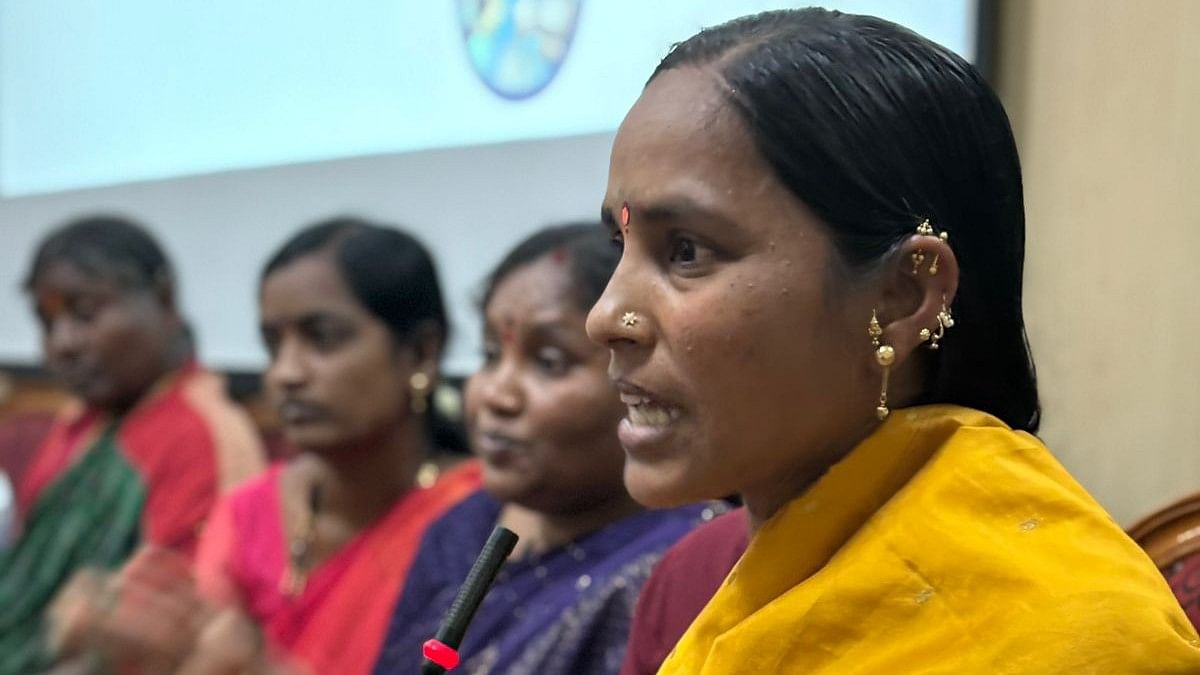
Yadgir-based Rekha and other migrant workers at the 'Voice of the Voiceless' event in the city on Friday.
Credit: Special Arrangement
Bengaluru: Rekha, a construction worker from the Amruthahalli community, pours water on her sheet-roofed hut when the heat gets unbearable on summer nights.
"It is hot in our village also, but there are trees and wind to manage the heat. But here, I see skyscrapers everywhere,” said the Yadgir native.
Yellamma, who has been living in Uttarahalli community for about 15 years now, often finds herself clearing sewage mixed rainwater flooding into the house during heavy rains, while Mahadevamma can’t cook her meals post-rain due to dampened firewood.
This is the case of women migrant workers in Bengaluru. The men in their families sleep outside the house, risking their lives to diseases caused by mosquitoes and snake bites.
Bengaluru’s migrant workers — constituting about 20 per cent of its population — bear the brunt of climate change, pushing them to balance between their dignity and livelihood.
The cases were presented by eight workers from different communities, representing about 30 lakh migrant workers in the city at 'Voices of the Voiceless', organised jointly by the Jan Sahas Foundation and the Bruhat Bengaluru Mahanagara Palike’s (BBMP) Climate Action Cell on Friday. The session aimed at intersecting the consequences of climate change with the lives of workers who live among us and go unnoticed.
Kariyappa, who moved to Bengaluru for construction work due to increased dependence on rain in the farming-specific community, said: "Without rain, we would go jobless if we depend on agriculture. So we came to Bengaluru in search of jobs that pay us. But here, we end up not having basic facilities despite being the ones who built this city."
Ravi, from the Hoodi railway station community, highlighted that women and adolescent girls in their communities do not have safe spaces for sanitation.
Other speakers included Shivamma from the Peenya Industrial Area, Anumesh from Ramgiri Circle, and Ibrahim from Devanahalli.
Responding to the concerns of the workers, Deputy Labour Commissioner AH Umesh elaborated on the benefits provided by the government for the welfare of construction workers.
"A 1% cess is levied on the cost of construction to provide benefits for the workers in the form of pension and insurance. All construction workers are required to register to avail this benefit," he said.
The session was moderated by civic activist Srinivas Alavilli and Bharath Nataraj, and Siji Chacko from Jan Sahas. It was concluded that a detailed vulnerability map will be done to provide basic amenities for the workers on the fringes.